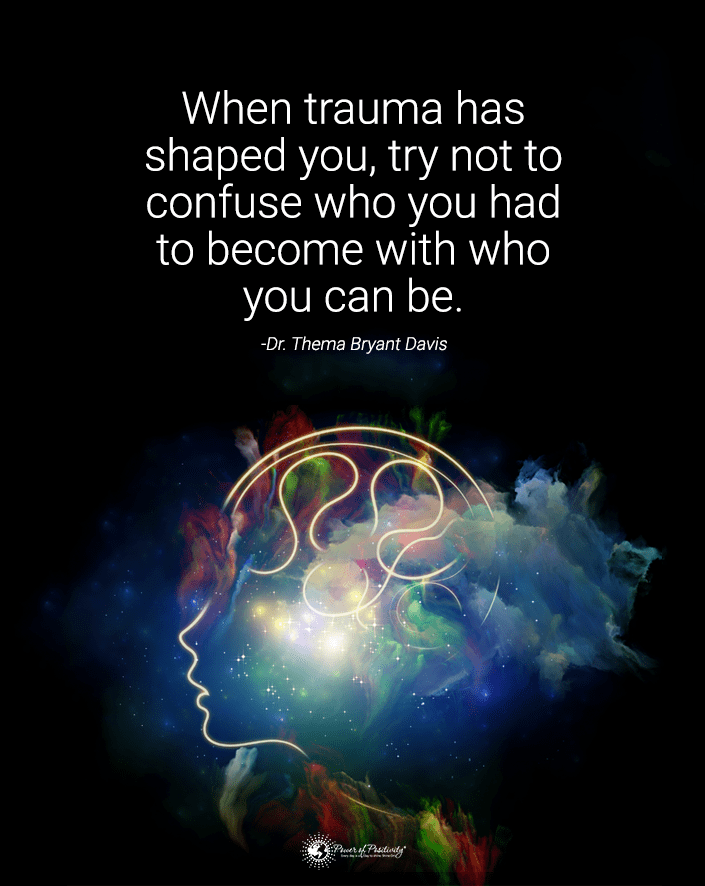Parents provide the first sense of validation and guidance in their child’s life. They teach about boundaries and making decisions, allowing kids to form healthy relationships into adulthood. However, emotionally unavailable parents neglect to provide their children with the comfort and validation they need.
When parents don’t provide this guidance, it causes emotional issues for their children. It makes it hard for their kids to trust people, hindering their ability to build meaningful relationships. Emotionally unavailable parents neglect their children because they don’t give them what they need for proper mental health growth.
Kids with emotionally unavailable parents can develop problems that last well into adulthood. These issues stem from emotional abuse and include:
- PTSD
- Bipolar disorder
- Insecurities
- Depression
- Fears
- Dissociative identity disorder
- Anger management issues
Identifying the red flags that reveal emotionally unavailable parents can help you address the issues in your life. If your parents weren’t there for you emotionally, make a change to improve your life right now.
Five Causes of Emotionally Unavailable Parents
While there’s no excuse for your parent emotionally neglecting you, there are some reasons it happens. If your parent went through mentally harmful situations, it could affect their parenting style.
1. Mental Health Conditions
If your parent has a mental health condition, it can cause them to be emotionally unavailable. While it isn’t their fault, they have a condition. It’s still essential that they reach out to get help.
2. Deep Insecurity
If your parent has crippling insecurity, it can cause them to be emotionally distant. Their fear could overtake their ability to interact, especially in a loving way. They might be afraid to mess up how they raise you, unknowingly causing further issues.
3. Trauma
When your parent experienced trauma in their past, it can linger into their parenting style. They may have gone through adverse life-changing events or experienced abuse.
4. Narcissistic Personality Disorder
People with Narcissistic Personality Disorder (NPD) cannot care about anyone but themselves. If your parent has this condition, it can be hard to make them guide you. It’s not your fault, and understanding the disorder can help you remember that it’s not you.
5. Hormone Deficiency
If your parents’ hormones are imbalanced, it can affect their personality and behaviors. They might not be able to attach emotionally, even if they want to.
Thirteen Signs of Emotionally Unavailable Parents
You’re not alone if you have emotionally unavailable parents. If you can identify the issue, you can learn how to overcome it and live a fulfilling life.
1. Emotionally Unavailable Parents Don’t Tell You That They Love You
Parents should vocalize their love for their children. It helps build a foundation for self-esteem and makes the child feel safe at home. This situation can be unsettling and confusing if you don’t hear it from your parents.
A parent telling their child they love them helps them feel secure. They’ll know that their parent will always be there for them. When a child knows they can always fall back on their parents, they’re more likely to seek healthy relationships with boundaries.
2. They Neglect Setting Rules for Their Children
Parents who don’t invest in their children don’t always care how they behave. If your parent was like this, they might have let you do whatever you wanted. While being overly strict isn’t ideal, there should be rules and boundaries.
The child might think it’s great at the time, but it’s highly detrimental long-term. It can also be unsafe if a child is allowed to do anything they want. The structure benefits social development, so parents need to implement it sometimes.
3. They Aren’t Interested in Your Accomplishments
Praise isn’t everything in life, but children must hear it from their parents. When a child works hard on a test, a parent should be interested and excited for the child. Parents who say nothing about it or barely engage are emotionally unavailable.
It can be devastating when your parents don’t care what you do in your life. Eventually, you’ll feel like you can’t share things with them because it’ll only lead to disappointment. When a child grows up this way, they’ll likely question their abilities well into adulthood.
4. Emotionally Unavailable Parents Don’t Listen to You
Emotionally unavailable parents don’t acknowledge what their children say. They don’t take the time to focus on the child, either being preoccupied or withdrawn. This behavior invalidates your child and the neglect can make them feel unloved and unwanted.
Don’t confuse not listening with the normal dynamics of a parent and child relationship. Sometimes disagreements arise, and one person will accuse the other of not listening. This situation is different because an emotionally unavailable parent often doesn’t respond.
Not listening leads to your parents not understanding you or your thoughts. It’s frustrating and causes children to miss out on the validation that helps form healthy relationships later in life.
5. They Don’t Hold Themselves Accountable
Emotionally unavailable parents blame their children for things that aren’t their fault. When the parent makes a mistake, they don’t admit it and tend to accuse the child instead. Or, they’ll say that the child caused them to mess up.
They might call you dramatic if you try to talk to them about the situation. They’ll accuse you of starting a fight rather than realizing you’re only trying to discuss a problem.
6. They Neglect Activities or Miss Important Events
Parents can’t always attend every event, coach a team, or be involved with the PTA to engage. They should prioritize some of your important events and make it a point to show up.
Of course, some jobs don’t allow any time off, but those parents still talk about the events with you and show excitement for them. As children become teenagers, not seeing their parents attend any events makes them feel unsupported or unloved.
7. The Don’t Congratulate or Validate You
No matter how well you do, emotionally unavailable parents don’t validate your hard work. They won’t congratulate you for a well-done job, and you’ll feel like nothing you do is good enough. If you do great, they’ll still point out one flaw and disregard the rest of your work.
When parents behave this way, the child thinks they aren’t worth anything. It can also cause the child to question their self-worth, pushing them down a negative path.
8. They Don’t Make You Feel Special or Important
Parents should make their children feel important every day. Without this kind of nurture, it can leave a person feeling worthless and unloved. Young children struggle with this the most because they’re growing and maturing then.
It’s hurtful to children of all ages when parents neglect making them feel special. Plus, the effects of this situation during childhood linger into adulthood, too.
9. Emotionally Unavailable Parents Yell Often
Emotionally unavailable parents often shout and scream over minor things. They over-react, leaving their children living with excessive hostility.
This situation affects children for life, confusing them about what healthy relationships and love look like. All parents lose their tempers sometimes, but the yelling shouldn’t be constant.
10. They Don’t Care About Their Child’s Happiness
Emotionally unavailable parents don’t seem to care about how their child feels. They prioritize their happiness instead and don’t care about the repercussion. This hurtful and disappointing behavior hinders a child’s view of healthy relationships.
11. Emotionally Unavailable Parents Don’t Show Affection
Studies show that children who receive regular hugs experience more positive emotions than those who don’t. Hugs increase oxytocin levels in the brain, helping people feel closer to loved ones. It also positively affects stress-related hormones that improve moods and ease anxiety.
When parents show their children affection, they grow up feeling loved and cared for. Feeling safe and loved is essential to a child’s growth and development.
12. They’re Friendlier to Other People Than to You
It’s a red flag if your parents behave one way in public but entirely differently when with you. They might smile and laugh with friends but then mope around the house, ignoring the family. These are the parents who prioritize appearances rather than emotional stability at home.
This behavior leaves children feeling stuck, empty, and alone. They feel unloved, wondering why the person supposed to love them is nicer to others.
13. They Neglect to Ask Questions or Talk to You About Your Life
Parents should ask questions about their child’s life, no matter how old they get. Emotionally unavailable parents don’t ask questions, leaving their children feeling inadequate. It makes it seem like they’re uninterested in you and your life, causing feelings of insignificance and loneliness.
Final Thoughts on Emotionally Unavailable Parents
Emotionally unavailable parents stand in the way of healthy child development. The issues linger into adulthood, giving adult children problems to overcome.
If you recognize any of these red flags of an emotionally unavailable parent, remember that it isn’t your fault. Your parent behaves this way because of inner turmoil they haven’t dealt with yet. Try not to take it personally because the neglect has nothing to do with who you are.

















 Community
Community

